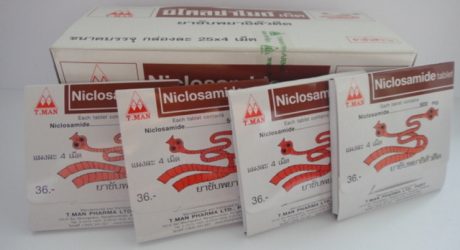A drug that is currently used to treat tapeworms could actually kill the Zika virus.
According to Science Daily, a team of researchers from Florida State University (FSU), Johns Hopkins University and the National Institutes of Health has found that existing drug compounds can both stop Zika from replicating in the body and from damaging the crucial fetal brain cells that lead to birth defects in newborns.
One of the identified compounds is the basis for Nicolsamide, a US Food and Drug Administration approved drug that is already on the market as a treatment for tapeworm. It showed no danger to pregnant women in animal studies.
This could theoretically be prescribed by a doctor today, though tests are still needed to determine a specific treatment regimen for the infection.
“We focused on compounds that have the shortest path to clinical use,” said FSU Professor of Biological Science Hengli Tang. “This is a first step toward a therapeutic that can stop transmission of this disease.”
Tang, along with Johns Hopkins Professors Guo-Li Ming and Hongjun Song and National Institutes of Health scientist Wei Zheng identified two different groups of compounds that could potentially be used to treat Zika — one that stops the virus from replicating and the other that stops the virus from killing fetal brain cells, also called neuroprogenitor cells.
Their work is outlined in an article published Monday by Nature Medicine.
Though the Zika virus was discovered in 1947, there was little known about how it worked and its potential health implications — especially among pregnant women — until an outbreak occurred in South America last year.
The virus, among other diseases, can cause microcephaly in fetuses leading them to be born with severe birth defects. “It’s so dramatic and irreversible,” Tang said. “The probability of Zika-induced microcephaly occurring doesn’t appear to be that high, but when it does, the damage is horrible.”
Researchers around the world have been feverishly working to better understand the disease — which can be transmitted both by mosquito bite and through a sexual partner — and also to develop medical treatments.
Read more: http://www.caribbean360.com/news/tapeworm-drug-answer-zika#ixzz4Iph4J9AP














